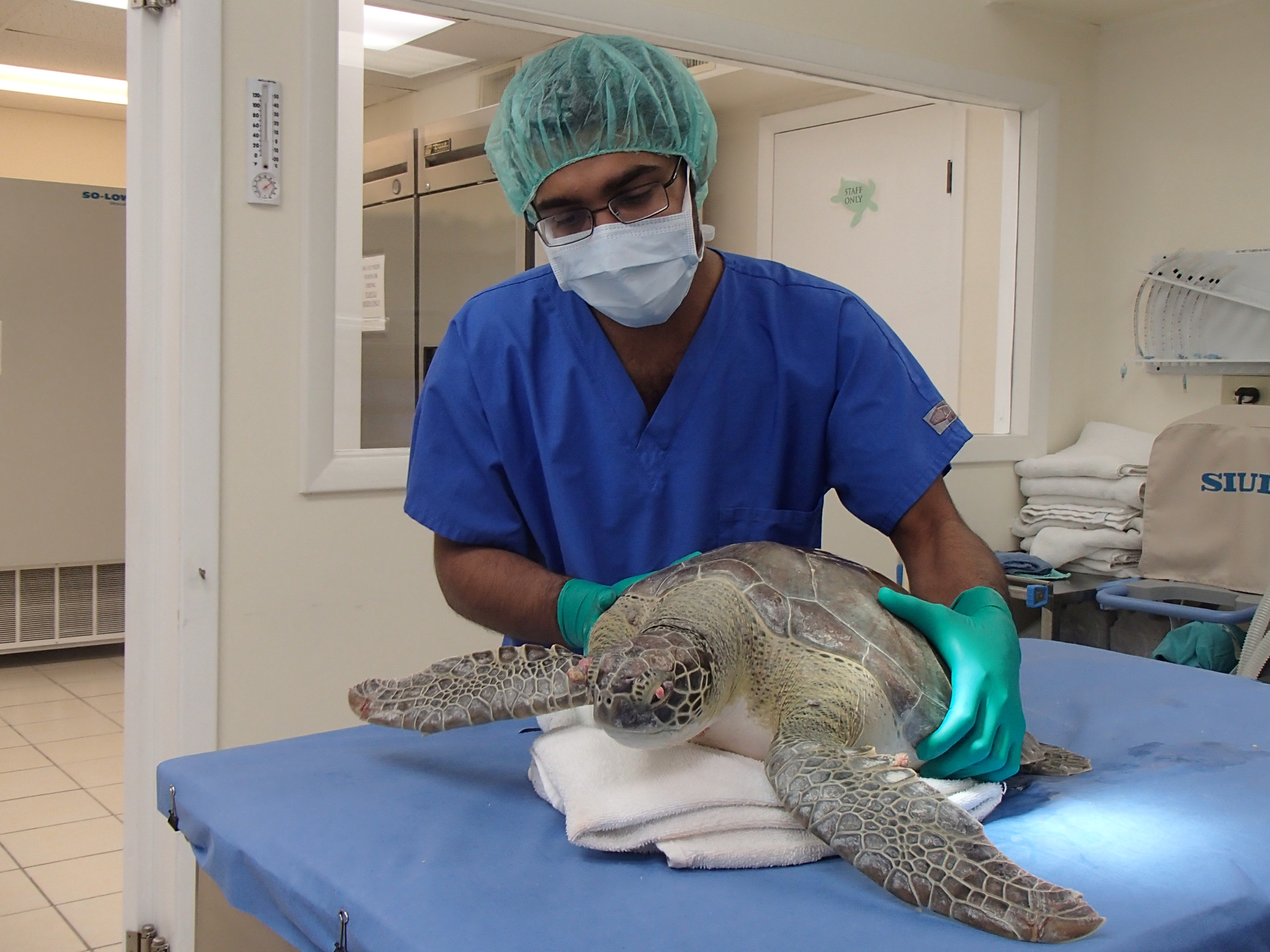Endangered green sea turtle recovering from surgery to remove life-threatening tumors
GAINESVILLE, Fla. – An endangered green sea turtle rescued last month in the lower Florida Keys was recovering today after surgery performed Friday to remove potentially life-threatening tumors from its eyes.
Shelly Krueger, a Florida Sea Grant agent who works with the University of Florida IFAS Extension in Monroe County, was leading a group of Florida Master Naturalist students on a snorkeling trip at the Mote Marine Lab Center for Tropical Research’s coral nursery, in the lower Florida Keys when they discovered the turtle.
The students got close enough to the turtle to tell tumors were impairing its vision, Krueger said.
She and the students hauled the 29-pounder onto their boat and called The Turtle Hospital in Marathon, which dispatched a special turtle ambulance.
Krueger, who named the turtle IFAS – the acronym for UF’s Institute of Food and Agricultural Sciences -- learned from veterinarians at the hospital that he was suffering from fibropapillomatosis. Left untreated, the virus causes fibrous tumors to grow over a turtle’s eyes, mouth and other body cavities, interfering with its ability to find and eat food. The deadly disease is specific to sea turtles but most common in green turtles.
IFAS has already had some of his tumors removed and appears to have regained sight in one eye, Krueger said. He’ll soon have more surgery to remove tumors and will remain at The Turtle Hospital under quarantine for about a year to make sure the tumors do not recur, because the condition is contagious.
According to the World Wildlife Fund, there are about 203,000 nesting females worldwide.
In the coming months, UF/IFAS Monroe County Extension’s Facebook page will offer updates on the turtle’s condition, at https://www.facebook.com/MonroeCountyExtension. Krueger’s group hopes to secure funds to equip IFAS with a tracking system so that they can keep up with him following his release.
Credits
By Becca Burton, 352-294-0763, rlburton@ufl.edu
Contact: Shelly Krueger, 305-292-4501, shellykrueger@ufl.edu
